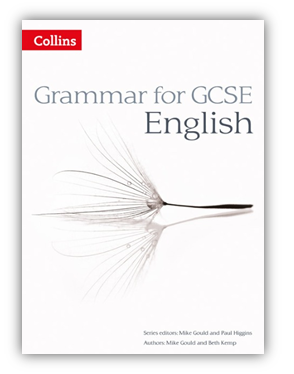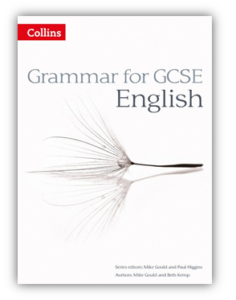Spelling, punctuation and grammar is on the agenda again. Not only do our key stage 2 students have to sit the controversial ‘grammar tests’, but most subjects now need to award marks for SPG at GCSE level. So, we need to help our students to be ‘good at grammar’. And I think that this is important for more reasons than we perhaps realise.
In the AQA 2017 English Language exam, writing accounts for 50% of the marks. These marks are divided up into ‘Communication and Organisation’ and ‘Technical Accuracy’. However, I think that teaching each of these aspects of writing in isolation does an injustice to our students. In order to ‘communicate’ effectively and stylishly, it is essential for students to make informed choices in their writing, and I feel that if students understand how language works, it enables them to make better choices. Therefore, ‘good at grammar’ won’t just help students with their technical accuracy, but with their communication and organisation too.
A great resource to help you with teaching students about grammar is the ‘Aiming for: Grammar for GCSE English’ student book. I have to say that I love this book. It breaks down the different writing purposes (writing to inform/persuade/describe/summarise etc) into fantastic word level, sentence level, punctuation and paragraphing lessons. These can be used to help students in 1-2-1 and small group sessions, but they can also be used effectively with whole classes.
After our March Mock exams with year 10, we used these books as the basis of our descriptive writing scheme of work. Some teachers worried that by breaking down good descriptions into noun phrases, post modifiers, and embedded clauses, we would be ‘over-complicating’ things for our students, but it has, in fact, had the exact opposite effect. Teaching our students these terms has allowed us to be much more precise with explaining HOW to improve their descriptions, and it has allowed them to be much more informed with the choices they make in their writing. Instead of just telling our students to ‘add more detail’, we are able to tell them to ‘use more concrete nouns in your description, and modify them with interesting adjectives’.
So, I heartily recommend these books to you. They will build on the work our students have been increasingly doing at primary school, and they will help them to become more informed, effective and stylish communicators.
Naomi Hursthouse has been teaching in West Sussex for nine years. She has worked as an Advanced Skills Teacher for four years and is currently Head of English at Westergate Community School. She has worked as an examiner for AQA for nine years and has been writing articles and blogs about teaching for Collins Freedom to Teach since 2009. She was born in Dumbarton, Scotland but moved down to the South Coast of England for some sunshine ten years ago. She has finally found it.




